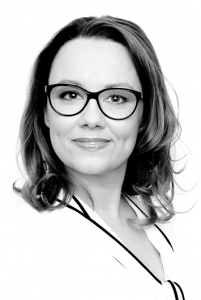Young German parliamentarians favor new relationship
Four years ago, I was walking through the old town of Jerusalem during sunrise. Nobody was up and the narrow alleys were still fast asleep. The nascent rising burning sun of the Middle East was sparkling on the polished surface of the streets. From that time on this memory has been alive inside me: Jerusalem, sheeted with a thousand years of history, and the awareness that this is the delightful freckle where the bloody struggle has been taking place since the beginning of time.
Having been in Israel twice before, now I was on my first visit as an official member of the German parliament. Invited by the American Jewish Committee (AJC), our group of eight members of the German Bundestag from different political parties came here to speak with scientists, politicians, journalists, and analysts and to get acquainted with the country. Most of the travelers hadn’t been to Israel before. And this trip was going to be more than a political exchange on the diplomatic level.
Hard work
When we arrived, the current peace negotiations had failed again and the Palestinian Government had announced a co-operation with Hamas. The conflict and negotiations are older now than some of the younger members of our group. Our agenda was so compact that no auditing authority could ever doubt that our days in Israel were going to be hard work. The timing of the meetings with Israelis and Palestinians was tight and the main topic was basically the hundred reasons why peace and a two-state-solution would fail again. Peacemaking, that became obvious, is more complicated than it looks from a German point of view. “How complex the situation is,” said Bernd Rützel from the Social Democratic Party (SPD), “can’t be understood just by watching TV.”
Mistrust, the conflict, the deep-seated fear of the Jewish Nation were very palpable. It became clear during our visits at the Ministry of Foreign Affairs and Yad Vashem. It is cemented into reality by the eight meters high concrete wall, the border to East-Jerusalem on our way to Ramallah. Even Prime Minister Benjamin Netanyahu’s speech sounded cemented in a particular way, when he warned intensely of the danger of a new Holocaust planed by Iran. Is that the sound of willing peace?
Memory as an advisor?
Our delegation were official guests at the memorial ceremony for the victims of the Holocaust. I felt ashamed for every tear I could not hide. I didn’t want to be a “sentimental German.” My inner eye visualized the Nazis singing Christmas songs with Joseph Mengele in the courtyard of Auschwitz, next to a Christmas tree – right in the middle of the Shoah. Marta Wise, who was a child back then and survived, had told us the story of her life earlier. I agonized with the ceremony, with myself as a representative of the Germans, and about my right to be deeply sad about this period in German history. But how long will the memory stay alive and the survivors be part of our present? Will the intensity of the Jewish-German relationship lessen over time, as some discussions in Germany suggest? And is this memory actually a good advisor to assess current Israeli politics?
At night, on the balcony above the lights of Tel Aviv, our Social Democratic group talked about the nature of xenophobia and anti-Semitism and also about the ability of humans to live in peace. “The historical narrative will not suffice for the future of the German-Jewish relationship. Something new is coming,” says Metin Hakverdi, my peer from the Bundestag. And I feel my thoughts reflected in his words.
Challenges for the young generation
The next day, when we slip into Tel Aviv to visit a school and a start-up the common ground of the challenges for the younger generation becomes evident. Urban development, refugee questions, modern technologies are major issues. “Who knows that Tel Aviv generates such innovative and future-orientated business, just like Silicon Valley?,” Christina Kampmann, who like me is one of the youngest female members of the SPD in the German Bundestag, wonders. The younger generation also makes a difference in the development here.
Back home, I am aware that something new has to come. Something which doesn’t deny the past and at the same time creates a future in which Germany and Israel can stay together. A future in peace with the Palestinians. And another lesson is learned: It changes your perspective and sometimes even convictions when you travel to the place where it all happens. Israel, with it’s polarity, diversity and directness certainly won all our hearts. ■
